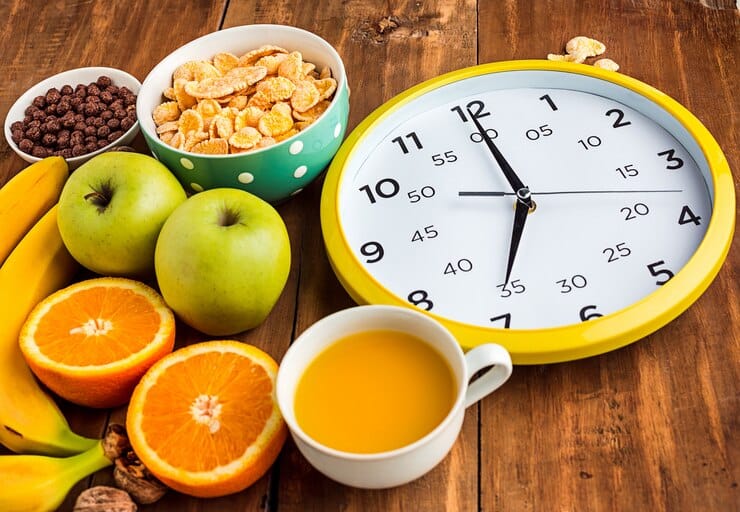Intermittent fasting (IF) has gained widespread attention as an effective approach for weight management, improved health, and optimizing the body's natural processes. It involves cycling between periods of eating and fasting, with methods like the 16:8 or alternate-day fasting being among the most popular. During fasting, the body experiences various beneficial processes such as fat burning, metabolic improvements, and cellular repair. When it’s time to eat, choosing the right foods is crucial for enhancing the results of your fasting regimen.
This article explores the best foods to consume during and after intermittent fasting to help you feel energized, maintain your health, and optimize your fasting results.
Best Foods to Eat During Intermittent Fasting
While fasting, consuming calories isn’t allowed. However, certain items can help you stay hydrated and curb hunger. Here are some options:
1. Water
Staying hydrated is essential during a fast. Drinking plenty of water helps maintain proper bodily functions and can prevent hunger pangs. Water supports fat-burning processes and helps detoxify the body, making it crucial to your fasting routine.
2. Black Coffee
Many people opt for black coffee during fasting. Since it’s calorie-free, coffee won’t interfere with your fasting state and can help suppress appetite. Moreover, coffee boosts metabolism, which may aid in weight loss.
3. Herbal Tea
Herbal teas, such as peppermint, ginger, and green tea, are perfect for your fasting window. These teas are naturally calorie-free, and green tea, in particular, has been shown to have antioxidant and metabolism-boosting effects, which support fat burning while you fast.
4. Apple Cider Vinegar (ACV) Gummies
Apple cider vinegar has long been used for its various health benefits, including improving digestion and supporting weight loss. While liquid ACV can be harsh on the stomach, ACV gummies provide a more convenient, milder alternative. These gummies can help with digestion and may also help curb hunger cravings when consumed before meals during your fasting period.
Best Foods to Eat After Intermittent Fasting
Once your fasting window ends, it’s time to nourish your body with the right foods. Focus on nutrient-dense, easily digestible options that will help you replenish energy levels and provide essential nutrients.
1. Lean Protein
Protein is essential for muscle recovery and satiety after fasting. Lean proteins like chicken breast, turkey, tofu, eggs, and fish provide high-quality amino acids that aid in muscle repair and help keep you full longer.
2. Healthy Fats
Healthy fats are a great addition to your post-fast meals. These fats support hormone health and help balance blood sugar levels. Sources like avocado, olive oil, nuts, and seeds offer vital nutrients and promote fullness, ensuring you don’t feel hungry soon after eating.
3. Non-Starchy Vegetables
Non-starchy vegetables like spinach, kale, broccoli, and cauliflower are packed with vitamins, minerals, and fiber. These vegetables are low in calories but rich in nutrients, helping to keep you nourished without overloading on sugars or unhealthy fats.
4. Whole Grains
Whole grains, including quinoa, brown rice, oats, and barley, provide slow-releasing energy, making them an excellent choice to break your fast. These grains help stabilize blood sugar levels and promote healthy digestion, essential for long-term health.
5. Fruits
Fruit is a natural source of simple sugars, which can help replenish glycogen stores and fuel your body after fasting. Berries, apples, and citrus fruits are rich in antioxidants, vitamins, and fiber, providing a sweet and nourishing way to break your fast.
6. Bone Broth
Bone broth is nutrient-rich, offering a good source of amino acids, collagen, and electrolytes that support joint health, digestive function, and recovery. It’s gentle on the stomach and can help rehydrate the body after a fast.
7. Fermented Foods
Fermented foods such as kimchi, sauerkraut, yogurt, and kefir are excellent for gut health. They are rich in probiotics that promote digestion and restore balance to your microbiome, which may be disrupted after periods of fasting.
ACV Gummies: A Convenient Supplement for Your Fast
Apple cider vinegar (ACV) gummies are a practical and tasty way to enjoy the benefits of ACV without the harshness of the liquid form. Incorporating ACV gummies into your fasting routine can:
- Boost Digestion: ACV supports the production of stomach acid, improving digestion and nutrient absorption.
- Aid Weight Loss: Some studies suggest that ACV can help reduce fat storage and increase fat burning, making it a valuable addition to your fasting routine.
- Control Appetite: ACV helps reduce hunger, making it easier to stick to your fasting schedule.
ACV gummies provide a simple, enjoyable way to enhance your fasting process and support digestive health throughout your fast.
Summing it up
Intermittent fasting can provide numerous health benefits when done properly, but choosing the right foods to eat during and after your fast is crucial for success. Stay hydrated with water, black coffee, or herbal tea during your fast, and choose nutrient-dense foods such as lean protein, healthy fats, and whole grains when you break your fast.
While having all these in your diet, adding ACV gummies into your routine can also support digestion and help curb hunger and sugar craving, making them a helpful addition during and after fasting. With the right foods and supplements, you can maximize the benefits of intermittent fasting and achieve your health goals more effectively.

